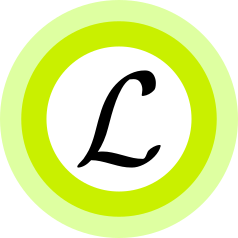The Allure of the Unknown: How Lack of Understanding Turns the Mundane into Magic
Human beings have always been fascinated by the mysterious and the unexplained. From ancient myths and legends to modern-day conspiracy theories, the unknown has a unique power to captivate our imaginations. One of the most intriguing aspects of this phenomenon is how a lack of understanding can transform ordinary phenomena into something perceived as magical. The less people understand about something, the more they perceive it as magic—and magic, in turn, has an irresistible allure that mesmerizes and attracts.
The Psychology of the Unknown
At the heart of this phenomenon lies a fundamental aspect of human psychology: our innate desire to make sense of the world. When we encounter something we don’t understand, our brains instinctively try to fill in the gaps. In the absence of clear explanations, we often resort to imagination, speculation, and even mysticism. This is why ancient civilizations attributed natural phenomena like thunderstorms, eclipses, and disease to the whims of gods or supernatural forces. Without scientific knowledge, these events seemed magical—powerful, mysterious, and beyond human control.
Even in the modern era, where science has demystified many aspects of the natural world, the allure of the unknown persists. Consider the fascination with magic tricks, for example. A skilled magician can make objects disappear, read minds, or defy the laws of physics—all while the audience knows, on some level, that it’s an illusion. Yet, the inability to understand how the trick is performed creates a sense of wonder and awe. The less we understand the mechanics behind the trick, the more magical it feels.
Magic as a Magnet
Magic, whether literal or metaphorical, has a unique ability to mesmerize and attract. This is because it taps into our deepest emotions: curiosity, wonder, and a longing for the extraordinary. When something is perceived as magical, it transcends the mundane and offers a glimpse into a world where the impossible becomes possible. This is why stories of wizards, witches, and supernatural beings have endured for centuries—they provide an escape from the ordinary and a chance to believe in something greater than ourselves.
Moreover, magic often carries an element of exclusivity. Those who possess or understand it are seen as special, powerful, or enlightened. This creates a sense of intrigue and desire. People are drawn to magic because it promises access to hidden knowledge or abilities that are beyond the reach of the average person. Whether it’s the allure of a secret society, the promise of ancient wisdom, or the thrill of a well-executed illusion, magic holds a powerful appeal.
The Dark Side of Magic
While the perception of magic can be enchanting, it also has a darker side. When people don’t understand something, they are more susceptible to manipulation and deception. Throughout history, charlatans and fraudsters have exploited this tendency, using sleight of hand, pseudoscience, or outright lies to convince others of their supernatural powers. From snake oil salesmen to cult leaders, the line between magic and manipulation can be perilously thin.
Additionally, the perception of magic can hinder progress. When people attribute natural phenomena or technological advancements to magic, they may be less inclined to seek out real explanations or invest in scientific inquiry. This is why education and critical thinking are so important—they empower people to distinguish between the truly magical and the merely misunderstood.
Embracing the Magic of Understanding
While the unknown will always hold a certain allure, there is also magic to be found in understanding. Science, for all its rigor and logic, reveals a universe that is infinitely complex and awe-inspiring. The more we learn about the world, the more we realize how much there is to discover. In this sense, knowledge doesn’t diminish the sense of wonder—it deepens it.
Ultimately, the perception of magic is a testament to the power of the human imagination. It reminds us that there is still mystery in the world, even in an age of information. By embracing both the known and the unknown, we can appreciate the magic of life in all its forms—whether it’s the wonder of a starry night, the thrill of a magic trick, or the joy of uncovering a new truth.
In the end, magic is not just about what we don’t understand—it’s about the endless possibilities that lie beyond our current knowledge. And that, perhaps, is the most magical thing of all.
